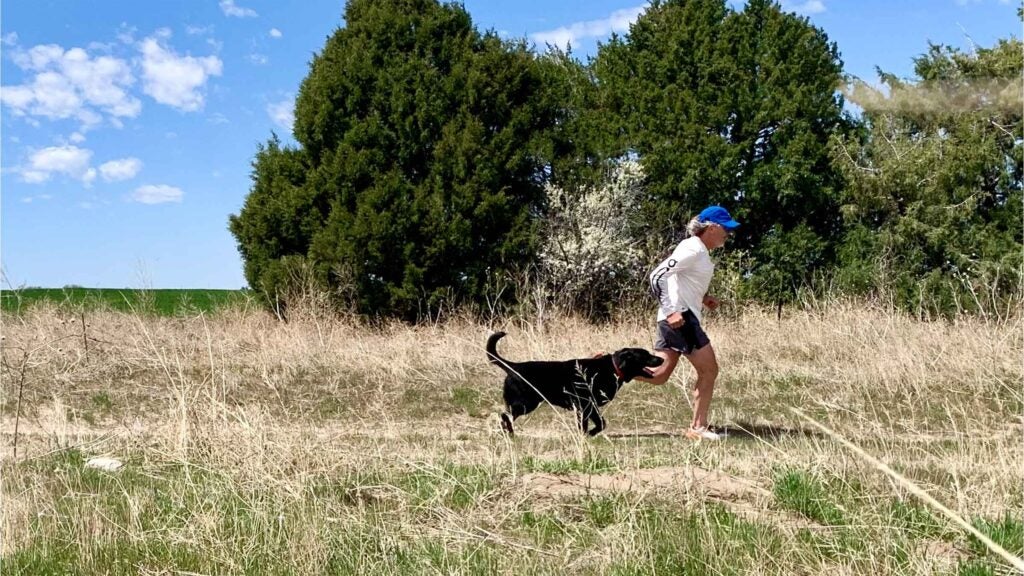No products in the cart.
Outdoor Adventure
The Gear Our Editors Loved This April
We once again found ourselves in the shoulder season, so we once again looked for gear that could handle conditions on both ends of the extremes. Pieces that could wick moisture as well as they could keep us warm from unexpected temperature drops, as well as pieces that transition just as easily from the trail to the coffee shop. These eight products helped us progress from winter to spring exceptionally well.
When you buy through our links, we may earn an affiliate commission. This supports our mission to get more people active and outside. Learn more.
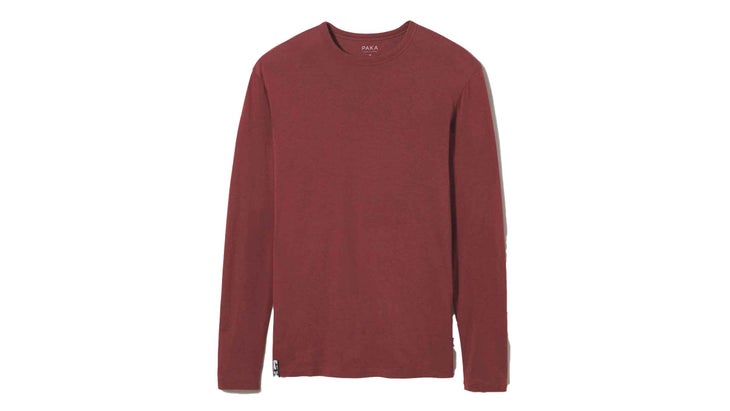
Paka Men’s Everyday Baselayer
Have you ever put a piece of clothing on that made all of the other clothes in your closet suck? That’s what happened the moment I slipped Paka’s Long Sleeve Base Layer over my head; I no longer wanted to wear any other shirt because this one was significantly more comfortable. Paka uses a mix of alpaca wool and Tencel (15 percent alpaca/85 percent Tencel) to create a super lightweight performance shirt that looks good enough to wear in public.
Paka calls it a base layer, and it’s certainly thin enough to wear under other layers, but it’s too nice to cover up. It has an athletic fit that stops just short of being tight, breathes well, and wicks moisture like a champ. I wear this shirt in situations where I don’t need it to wick moisture too much because it’s so damn comfortable, and I want to wear it all day. It’s like slipping into butter. It’s also fully machine-washable so you don’t have to treat it like an heirloom. —Graham Averill, gear and travel columnist
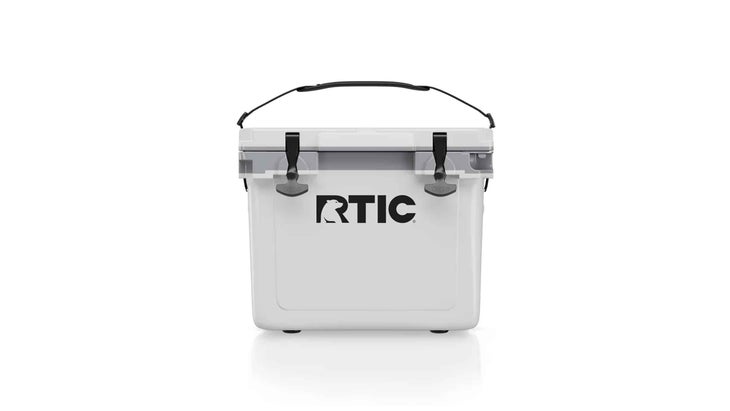
RTIC 22QT Ultra-Light Cooler
Do you need another cooler in your quiver? You might after you look at the bonafide of RTIC’s new 22Qt Ultra-Light, which bridges the gap between soft-sided coolers that are easy to carry and rotomolded coolers that keep drinks cold for days. The cooler holds 30 cans or eight bottles of wine inside a shell with 2.4 inches of closed-cell foam insulation. For a beer-hauler, that’s 30 percent lighter than most rotomolded coolers of the same size. At 11.5 pounds when empty, you can tote it to the beach or picnic with no problem, but it still keeps goods cold longer than you probably need.
RTIC claims up to six days of cold retention, but that’s if you follow their protocol, which includes pre-icing the cooler for 24 hours. I’ve never had the foresight to pre-ice a cooler the day before I wanted to use it, but I still found the 22QT Ultra-Light to perform up to par with similarly designed rotomolded coolers. It has kept my beer cold for 24 hours, easily.
You can also add some smart accessories to the cooler, like wine bottle holders to keep them upright, a freezable divider to help keep goods cold without taking up too much space, and a dry goods basket. It comes with some handy features, like a stainless steel bottle opener on the rim of the cooler, a silicone storage basket on the inside of the lid big enough to keep a couple of sandwiches cold but out of the ice, and a drain at the bottom to make it easy to dump water. And it’s just $130, which is a steal. —Graham Averill, gear and travel columnist
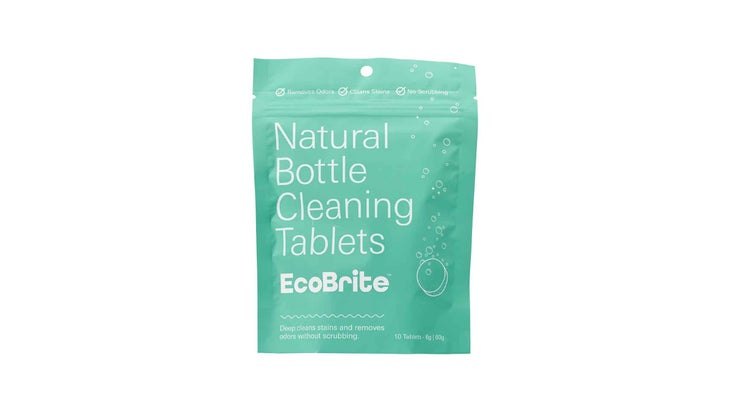
EcoBrite Natural Bottle Cleaning Tablets
I throw all my reusable bottles in the dishwasher. I’m a huge germaphobe with very little space for a drying rack, and it’s just easier than handwashing. I know this is not always advisable for some bottles, but I’m stuck in my ways. That is, until I started using bottle-cleaning tablets for handwashing.
The EcoBrite tablets are convenient and way more eco-friendly than hand washing, and I love that I can throw them in my toiletry case for cleaning bottles while traveling. They also clean stains so I don’t have to worry about using my bottles for tea—which opens a world of possibilities for drinks (especially homemade iced tea in the summer). Also, these tablets are biodegradable and made from natural elements. I’ll probably never go fully dishwasher-free, but these tablets are a step in the right direction. —Jamie Aranoff, digital editor, SKI
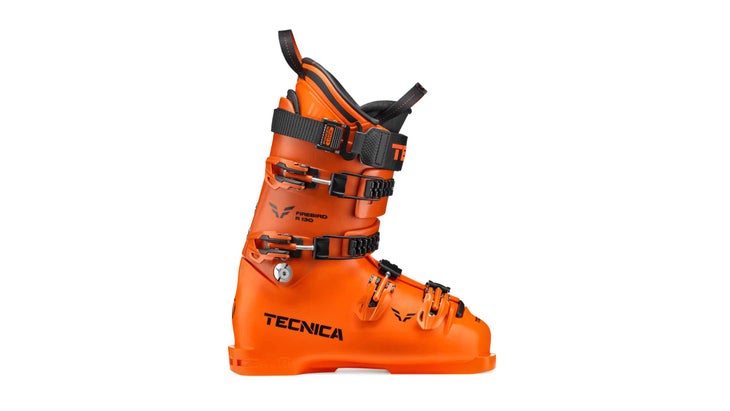
Tecnica Firebird 130 R ($899)
When I moved to Mammoth Lakes four years ago I was a firm-snow skeptic. I’d spent my winters at Alta mostly skiing powder and skipping cruddy ski days. But in the Sierra, if you only want to ski soft snow—well, you’re not going to ski very much. So I learned to embrace the windboard and mank. Doing so required some new gear, and none helped mute out rough snow and deliver incredible power than converting to a plug race boot.
With massively thick plastic walls that fit super close to the foot, the Firebird R gave me a new lease on skiing terrible snow. Edge-to-edge power transfer feels automatic in this boot, and its ability to drive big, burly, race-construction skis is unmatched by any all-mountain boot. Tecnica’s liner is impeccably built and provides the closest possible fit to the narrow shell. Do be warned that a boot like this will take time to fit well and can be very cold due to the thin liner. But for firm spring mornings, there’s nothing better. —Jake Stern, digital editor
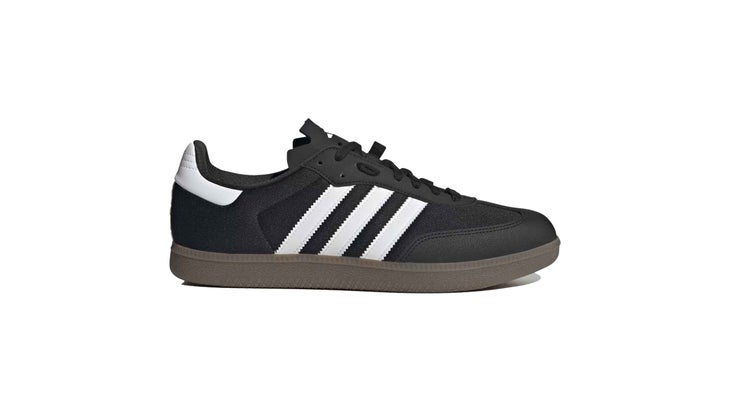
Adidas Velosamba Made With Nature cycling shoes
$120 at Backcountry $150 at REI
When I made my first foray into clip pedals a few years ago, I did so with a pair of sleek, carbon plate-soled hand-me-down cycling shoes. I love riding clipless, but they’re often overkill for my needs. They’re speedy and high-performing, but the blocky cleat under the forefoot makes them absurdly annoying to walk in. And since I generally prioritize being able to walk around the cafe at my mid-ride snack and espresso stop over speed or efficiency—not to mention the convenience of being able to occasionally commute on my bike without needing to swap in a second pair of pedals—I needed another option.
Adidas’ new SPD (Shimano Pedaling Dynamics) pedal-compatible shoe seemed custom-made to solve all my bike shoe problems. They have inset cleats within the soles, so they can be clipped in when you want them to, but you can’t feel them when you’re walking. I’ve taken them on a few shorter rides, including a 20-mile loop around town, and they were perfectly comfortable and functional. The sole is stiffer than the average sneaker, making a solid riding platform, but a touch of flex and the inset cleats make walking around off the bike a breeze. And of course, the best and most important factor: the retro look of Adidas’ classic Samba sneaker matches everything I’d reasonably be wearing on any ride. —Miyo Mcginn, editorial assistant
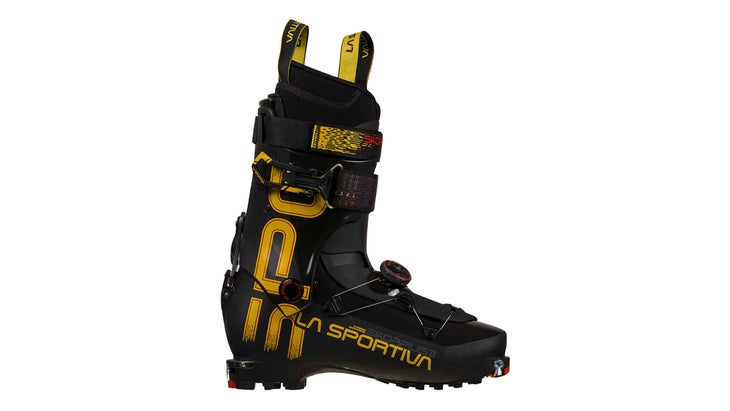
La Sportiva Skorpius CR II
A note to my loved ones: please bury me in my La Sportiva Skopius boots. Yes, that’s how much I love this magical AT (alpine touring) footwear, which seems to defy the conventional laws of comfort, flexibility, and downhill stiffness in backcountry ski gear. I stepped into a pair of Skopius’s earlier this year when my trusty AT warriors—a pair of Dynafit TLT 6’s from 2017—finally bit the dust after several seasons of hard skiing. I walked around the new Sportiva retail store in downtown Boulder with them on and marveled at how far AT boot technology has advanced in seven seasons. The Skorpius are true featherweights, and they tip the scales at 2380 grams or about 5.3 pounds for the pair.
The boots’ other qualities became apparent during my first uphill run at Eldora Ski Area a few days later. The Skorpius is remarkably flexible, with a stated 68 degrees of range of motion. I understand that this is comparable with other contemporary boots in its class (which I admit I haven’t tried), but when compared to my old Dynafit boots, this quality made them feel more like tennis shoes than ski boots. Climbing with these boots is an absolute joy, and the range of motion helped me ascend when conditions in the trees became icy because it allowed me to get a better grip.
When I got to the top of my first run, I flipped the metal tab in the back from walking into skiing mode and headed down. Lo and behold, the Skorpius magically transformed into a capable set of alpine boots. La Sportiva claims a stiffness rating of 100, and I found them to be extremely capable of carving through hard pack and crud. I skied about 15 runs in them this winter and the boots thrived in all conditions, even deep powder. They are perhaps my most versatile pair of footwear. I haven’t attempted to run a 5k in them or take them onto the dancefloor, but something tells me my feet would be just fine. —Fred Dreier, articles editor
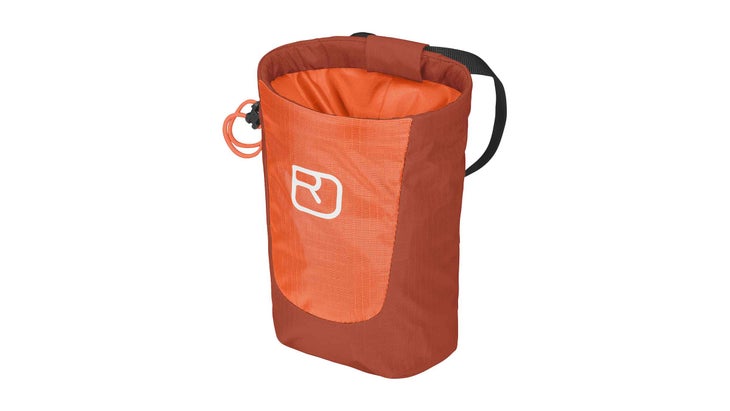
Ortovox Trad Chalk Bag
Chalk bags must be one of the simplest pieces of climbing gear to shop for, right? It’s a bag…that holds chalk around your waist. And yet, why am I so excited about the Ortovox Trad Chalk Bag? Because the Trad earns the rare gear title of “all-arounder.” It has a wide opening that is easy to aim for when wildly pumped on an overhang—even for someone with big hands like myself. When climbing multi-pitches in running shorts—as I love to do as the days get warmer—the Trad has a large zippered pocket that secures a full-size smartphone. And on top of that zippered pocket is a light Spandex pouch which can hold extra goodies like an energy bar, chapstick, or headlamp.
Despite the accessories, the Trad is still featherlight at 90 grams, making it equally suited for Flatiron scrambles and alpine-rock pushes—and everything in between. —Anthony Walsh, digital editor, Climbing
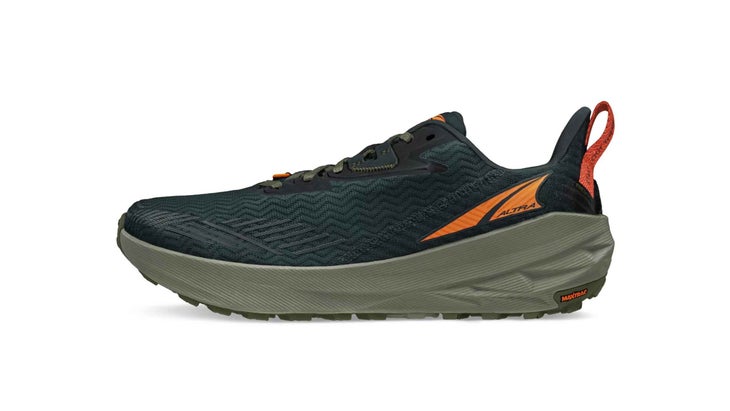
Altra Experience Wild trail running shoes
I’m continually testing shoes in my role on the Outside gear team and sometimes they seem to arrive as often as Harry Potter’s Hogwarts acceptance letters—so I rarely get to choose what shoes to wear when I head out for a run on any given day. On those rare days when I do get to wear whatever I want, however, I’ve found myself reaching for Altra’s new Experience Wild. The shoe stands out because it doesn’t stand out. Instead of drawing attention to itself, it delivers simple, lightweight comfort and quietly disappears on the run (in welcome contrast to the many high-stack, plated shoes I’ve been testing, that are admittedly fast and fun but take over the run).
The Experience Wild has Altra’s signature foot-shape that hugs the heel and midfoot, then opens up to a wide, comfortable forefoot where my toes can spread out, relax, and chill. The moderate stack of foam underfoot dampens impact but doesn’t sink my feet in too far or bounce back aggressively, instead rolling quickly off the early-stage rocker that, together with the heel bevel, encourages a quick, light stride.
Unusual for Altra, the Experience Wild does have a heel-to-toe drop, but it’s a tiny four millimeters, just enough to make the ride feel more “normal” to those of us who wear other shoes with drops, helping the shoe disappear. High sidewalls for lateral stability and a toothy tread make the Experience Wild off-road-worthy but I find it best suited for gravel roads and smooth-to-moderately-rugged trails. This is perfect, as that’s where I tend to go when I want to zone out, let the run take over and set my mind free to think about whatever it chooses. —Jonathan Beverly, senior running editor, gear
Source link

